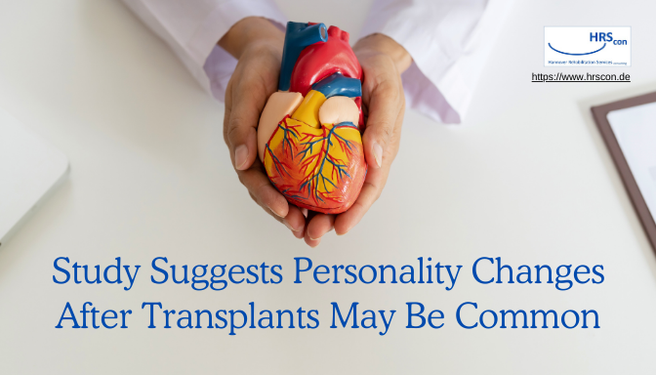For years, the idea that heart transplant recipients might inherit their donor’s personality alongside the new organ has sparked intrigue and even unease. New research published in Transplantology challenges traditional views, suggesting personality changes may be a more widespread phenomenon after organ transplants, not just hearts.
Unpacking the Mystery
This study aimed to answer two key questions:
- Do organ transplants, in general, lead to personality changes in recipients?
- Are these changes unique to heart transplants?
Researchers assessed 47 individuals who had undergone organ transplants: 23 received heart transplants, and the remaining 24 received transplants of other organs. All participants completed an online survey designed to evaluate personality traits.
Shifting Perceptions: A Surprising Prevalence
The findings were unexpected. A staggering 89% of all transplant recipients reported experiencing personality changes after surgery. This result significantly challenges the long-held belief that personality shifts are specific to heart transplants. Interestingly, the study found no significant difference in the overall prevalence of changes between the two groups (heart vs. other organs).
A Deeper Look: Body Image and Beyond
However, researchers did identify one key distinction. Changes in physical self-perception were the only statistically significant difference between heart and other organ recipients. This suggests that heart transplant recipients might experience a heightened awareness or alteration in how they view their own bodies. The study acknowledges that the sample size might have limited the detection of other potential differences. While both groups reported similar types of personality changes, these variations may not have reached statistical significance due to the limited number of participants.
Beyond the Data: Exploring the “Why”
This study offers crucial insights:
- It challenges the traditional view of personality changes being unique to heart transplants.
- The high prevalence of reported changes suggests this phenomenon could be a general consequence of organ transplantation, regardless of the specific organ.
While the study doesn’t delve into the causes of these shifts, it opens doors for further investigation. Some theories have been proposed:
- The Second Chance Effect: Facing near-death and receiving a life-saving organ can be transformative, leading to changes in values, priorities, and even personality traits.
- Cellular Memory: A Complex Question: This theory explores the potential influence of cellular memory, the idea that cells might retain some information about an individual’s life experiences. While scientific understanding of cellular memory is still in its early stages, some researchers hypothesize it might play a role in transmitting subtle aspects of a donor’s personality to the recipient.
Looking Forward: Implications and Future Directions
These findings have significant implications for both healthcare professionals and transplant patients:
- Enhanced Patient Support: Understanding the potential for personality changes can help healthcare professionals provide better support and address any anxieties or concerns patients may have after surgery. Open communication between patients and doctors is crucial in navigating these shifts in self-perception and personality.
- Empowering Patients with Knowledge: For transplant recipients, this research offers valuable knowledge about what may have previously seemed mysterious or even frightening. Knowing that personality changes are a relatively common occurrence after organ transplantation, regardless of the organ, can provide a sense of normalcy and empower patients to embrace their personal growth journeys.
This study marks a significant step forward in understanding the complex relationship between organ transplantation and personality. While further research is needed to pinpoint the exact causes of these changes, the initial findings suggest a broader impact on personality than previously suspected. By acknowledging and exploring this phenomenon, the medical community can better support transplant patients as they embark on a new chapter in their lives, one that may extend beyond just a physical transformation.

